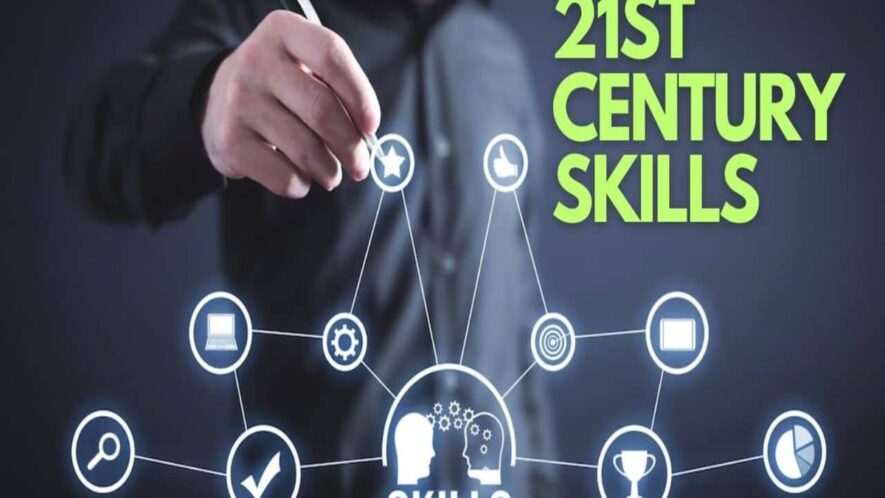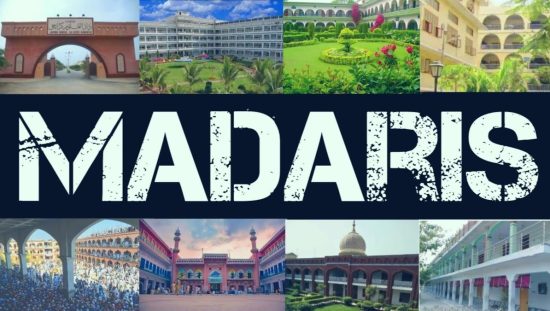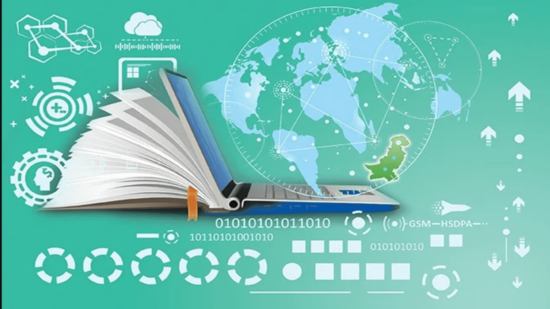21st century skills in education refer to a set of abilities and competencies that are considered essential for success in the modern world. These skills are believed to be crucial for students to thrive in the rapidly changing and technologically advanced society of the 21st century. They go beyond traditional academic knowledge and focus on equipping students with the skills necessary to adapt, collaborate, think critically, solve problems, and communicate effectively.
21st Century Skills for Learners
The 21st century skills are twelve (12) in number and are grouped into three categories, each serving a distinct purpose:
- Learning Skills (The Four C’s)
- Literacy Skills (IMT)
- Life Skills (FLIPS)
1. Learning Skills (The Four C’s)
Learning skills (the four C’s) are by far the most popular 21st Century skills. These skills focus on the mental processes required to adapt and excel in a contemporary work environment. The four C’s, which are widely recognized and sought after by educators, are:
a. Critical Thinking
Critical thinking is the ability to analyze problems and find effective solutions. This problem-solving skill involves analyzing information, evaluating evidence, and employing logical reasoning to identify and solve complex problems.
b. Creativity & Innovation
Creativity is the capacity to think innovatively and generate original ideas. Encouraging creative thinking, originality, and the ability to generate new ideas and solutions is important in today’s rapidly evolving world.
c. Collaboration
Collaboration is the skill to work harmoniously with others in a team setting. The ability to work effectively in diverse teams, communicate ideas, and cooperate with others to achieve common goals is highly valued in the 21st century.
d. Communication
Communication refers to the learners’ proficiency in expressing ideas and thoughts through effective verbal, written and digital communication. It emphasizes the learner to actively listen and comprehend others to make appropriate and effective communication.
2. Literacy Skills (IMT)
This category emphasizes students’ ability to navigate and comprehend the vast sea of information available in the digital world. There’s a strong focus on determining trustworthy sources and factual information to separate it from the misinformation that floods the Internet. The three literacy skills are:
a. Information Literacy
It refers to the learner’s ability to find, evaluate, and use information from various sources is crucial in a world where information is abundant and easily accessible. Information literacy emphasizes the learner’s competence to understand and interpret facts, figures, statistics, and data.
b. Media Literacy
Media literacy refers to the students’ ability to critically evaluate and interpret media messages in the digital age. It reflects the learner’s aptitude to discern the methods and platforms used for publishing information.
c. Technology Literacy
This refers to the understanding of the machines and technologies that underpin the Information Age. Technology literacy, also called Digital Literacy, reflects the learner’s proficiency in using digital technologies, including computers, software applications, and online resources, essential for success in the 21st century.
3. Life Skills (FLIPS)
These skills focus on intangible aspects of a student’s personal and professional life. They encompass qualities that are relevant in both spheres. The five life skills are:
a. Flexibility
The capacity to adapt to change, adjust plans as circumstances require, embrace new technologies, and learn continuously is crucial in a rapidly evolving world. Flexibility is critical to students’ long-term success. Knowing when to change, how to change, and how to respond to change is a lifelong skill.
b. Leadership
This skill enables the individual to motivate and guide a team towards achieving a common goal. Developing leadership qualities, understanding and managing one’s own key role, as well as empathizing with others, is vital for building positive relationships, resolving conflicts, and working effectively in teams.
c. Initiative
Taking initiative, and being proactive are valuable skills that empower individuals to drive positive change and make a difference. It produces the capacity to independently initiate and undertake projects, strategies, and plans.
d. Productivity
Productivity equips the students with the practical means to carry out the ideas they determine through flexibility, leadership, and initiative. That’s a student’s ability to complete work efficiently in an appropriate amount of time and avoid distractions.
e. Social Skills
The social skills refer to the proficiency in building and nurturing relationships, as well as networking for mutual benefit. Understanding and appreciating diverse cultures, perspectives, and global issues is important for fostering empathy, collaboration, and effective communication in a globalized society.
In short, 21st century skills significantly contribute to a student’s future career prospects. Educational institutions are increasingly incorporating these 21st century skills into their curricula and teaching methods, aiming to prepare students for the demands of the modern workforce and society. Integrating these skills into education helps students develop the abilities they need to succeed in a complex and interconnected world.
OTHER RELATED POSTS
Digital Divide among University Students



